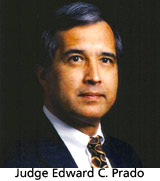3/23/2010
Federal Court Upholds Illegal Traffic Camera EvidenceFifth Circuit Court of Appeals rules that illegally gathered photo ticketing evidence should not be excluded.

A federal appeals court ruled yesterday that municipalities in most states may use evidence illegally collected by photo enforcement cameras. The US Court of Appeals for the Fifth Circuit made its decision in the case of Stephen Bell who sued both American Traffic Solutions (ATS), an Arizona-based red light camera operator, and Redflex Traffic Solutions of Australia for violating Texas statutes requiring companies involved in private investigation to obtain a license. The three-judge appellate panel determined that there was no problem with companies offering unlawfully obtained evidence in civil court cases.
"...Illegally obtained evidence may be admitted in civil traffic violation proceedings and that therefore the use of such evidence creates no injury," the court ruled.
Neither ATS nor Redflex have gone through the extensive background checks required of public investigation companies as the process is time consuming and expensive. Bell argued that these firms fit perfectly into the definitions provided under state law.
"Unless the person holds a license as an investigations company, a person may not... offer to perform the services of an investigations company," Texas Code Section 1702 states. "A person acts as an investigations company for the purposes of this chapter if the person engages in the business of obtaining or furnishing... information related to... crime or wrongs done; or... engages in the business of securing... evidence for use before a court, board, officer, or investigating committee... furnishing information includes information obtained or furnished through the review and analysis of, and the investigation into the content of, computer-based data not available to the public."
On the substance of his complaint, Bell convinced a number of judges. Last April, Dallas County, Texas District Court Presiding Judge Craig Smith ruled that a photo ticketing company "is required to obtain a license under the Texas Occupations Code." A federal district court judge also essentially agreed with Bell, assuming the need for a license in a ruling. But Judge Smith, the district judge and now the appellate panel agreed that on technical grounds, Bell had no standing to sue because he had not suffered injury to a "legally protected" interest.
The appeals court cited the Texas Appeals Court case Hudson v. Winn in which an unlicensed private investigator lied to gain entry into a home. The court found that the victim in the case had no standing to sue for negligence.
"Similarly, in this case, appellants have only made the bare allegation that ATS collected evidence without a license, without alleging any facts to demonstrate how ATS's lack of a license contributed to any invasion of their privacy," the court ruled. "Consequently, they have not shown the causation necessary to provide standing to advance their negligence per se claim in federal court."
A copy of the case is available in a 90k PDF file at the source link below.


